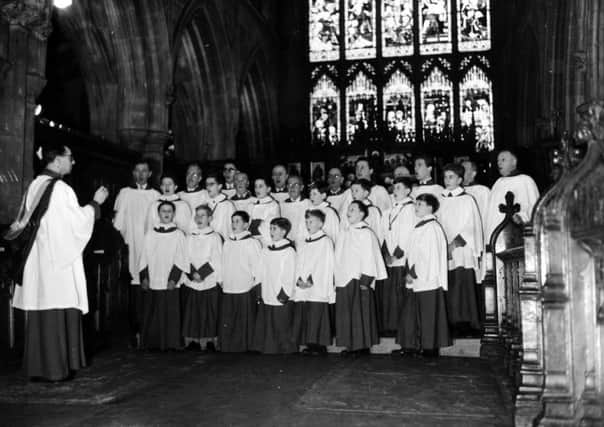Christmases past: A ray of hope when Berliners reunited for festive season


They were scenes the like of which the world had feared they would never see.
In the December of 1963, two years after its construction, there was a brief chink of light in the Berlin Wall. Temporary passes had been issued to allow West Berliners to visit their relatives in the East for Christmas and it wasn’t long before the steady stream of people passing through the gates became a flood.
Advertisement
Hide AdAdvertisement
Hide AdThe West Berliners were easy to spot as they made their way through the downtown traffic. The women wore coats edged with fur, their bright clothes standing out against both the grey winter sky and the drab, practical outfits of the East Berliners. It was a clash of cultures and when the Westerners began walking across the border, the figures who stared back seemed to belong to the world of half a century before.
Officially, the value of gifts was limited to 30 marks – the price of a British turkey in 1963 – but the Communist guards didn’t seem to pay too much attention to what was being taken across the border. Usually known for their sour looks, that December some swore they saw them even crack a smile as they helped mothers with prams and held the hands of young children as they crossed the border, while powerful loudspeakers, the same ones which two decades earlier had been used to hurl Communist propaganda, now boomed out a welcome to the Westerners.
Back in Yorkshire, another less politically charged reunion was taking place.
Dora Wingrove, who had been born on a Hull railway station, finally spoke this week to one of her two long lost sisters in New Zealand. The saga had begun some 70 years earlier when the wife of a gamekeeper had been travelling north from her home Kent to see her aunt in Hull.
Advertisement
Hide AdAdvertisement
Hide AdHeavily pregnant and with three very young children in tow, she never made it out of the city’s Paragon Station. Going into labour on the railway platform, what happened next was a stark sign of the times.
Seeing the woman was already struggling to look after her existing brood, the doctor who attended the birth suggested she have her new daughter adopted. There was, he said, a woman he knew who had recently had two stillbirths and would make a wonderful mother. Right there the deal was done. Dora didn’t find out she was adopted until she was in her 20s and it was only then that the search for her family began. A newspaper advertisement appealing for information was eventually answered by her father and it turned out that as well as two sisters, she also had nine brothers. Many of them had moved abroad and while she had been writing regularly to her sister May, who lived in Auckland, without a home telephone they had never actually spoken.
That changed thanks to a Yorkshire Post campaign to reunite families in the run up to Christmas. Coming into the newspaper’s offices in Leeds, Dora was put through to New Zealand and for a while the only thing she could say was, “isn’t it lovely to hear your voice after waiting all these years”.
For the pensioner it was the perfect start to Christmas which for many families was promising to be a traditional affair. The television schedules were to feature carol concerts and church services woven around old favourites like Z-Cars and Coronation Street, while on the high street home tape recorders and recorder players were top of most people’s wishlist.
Advertisement
Hide AdAdvertisement
Hide AdHowever, that year the festive season did not pass without incident. On December 22, some 180 miles off the coast of Madeira, fire broke out on the Lakonia cruise ship. Of the 651 passengers on board, 38 were from Yorkshire and their families faced an anxious wait as news of the rescue slowly filtered through.
All those from the county were saved and as they reached dry land they formed a strange procession as they made their way down the gang planks. Some of the women were still dressed in the jewels and furs they had worn for an evening which ended in disaster. Scattered among them were men wearing pyjamas topped by cloth caps.
Back in Leeds, a theatre producer was learning a valuable lesson. That year’s production of Humpty Dumpty at the city’s Grand Theatre had been advertised as featuring a “thrilling duel” between star Tommy Tucker and the ogre’s henchmen. The production even used real swords, but after Tucker left the stage covered in blood and needed six stitches to his hand, that particular scene was quickly dropped for the rest of the run.